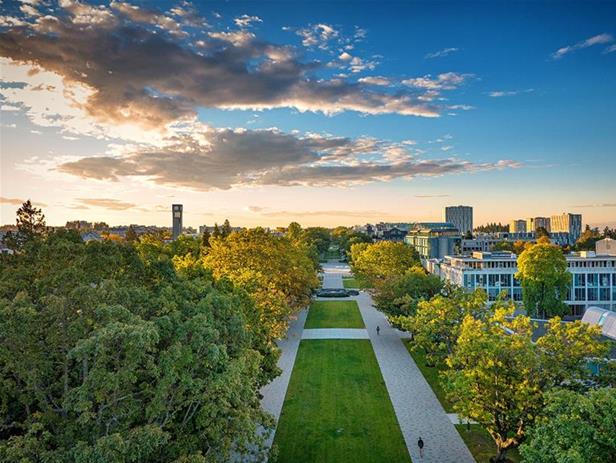Address (Map): 2329 West Mall, Vancouver, British Columbia V6T1Z4 Canada
Sector: Educational
Delivery Type: Energy Performance Contract
MCW Office: Vancouver
Status: Complete
Sub Categories: College & University
Project Scope:
277 Buildings - 6.8 Million Square Feet
Annual Energy Cost Savings:
$4,000,000
Annual GHG Emissions Reductions:
11,032 Tonnes eCO2
Project Initiated In:
2003
Project Cost:
$37,800,000
Project Description
The University of British-Columbia is one of the largest Universities in Canada. It maintains two campuses: the 400 hectare UBC Vancouver campus, and the 209 hectare UBC Okanagan campus.
In partnership with UBC, MCW implemented what was, at the time, the largest single-phase energy management project ever undertaken by a Canadian university at its Vancouver campus. The project, named ‘ecotrek’, demonstrates MCW’s capability to successfully deliver an Energy Performance Contract to an institution with a large, diverse facility portfolio spread out across a sizeable, interconnected campus.
Project Highlights:
- Major improvements to the Central Steam Plant and Distribution System in order to reduce GHG emissions created from steam production by boilers that were utilizing 40 year old technology
- The replacement of steam absorption chillers with high-efficiency electric chillers – a measure made possible due to advantageous electricity rates and the low carbon intensity of electricity in B.C.
- Expanding the Building Management System to nearly 4 mil sq. ft. of the campus heating and ventilation systems.
- Metering utilities (electricity, steam, and water) in most of the academic buildings.
- Installing low water consuming plumbing fixtures to save $600,000 per year, or enough water to meet the needs of 11,785 people.
- Greenhouse Gas emissions reduction equivalent to taking 2,500 vehicles off the road.
- National First Prize for the Canadian Association of University Business Officers (CAUBO) Quality & Productivity Awards
- UBC President Martha Piper called ecotrek “a roadmap for other universities, schools, hospitals and institutions seeking a cost-recoverable way to reduce their energy consumption.”




